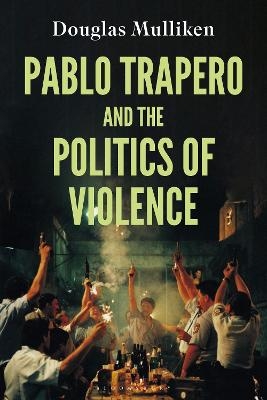
Pablo Trapero and the Politics of Violence
Bloomsbury Academic (Verlag)
978-1-350-16338-6 (ISBN)
Through a focus on several previously under-studied elements of Trapero’s films, Mulliken highlights the ways in which the director’s work represents present-day concerns about social inequalities and injustice in neoliberal Argentina on-screen. Finally, he examines how Trapero combines aspects of Argentina’s long tradition of political film with elements of Nuevo Cine Argentino to create a unique political voice.
Douglas Mulliken received his PhD from the School of Modern Languages and Cultures at the University of Glasgow, UK. He holds master’s degrees from the University of Virginia and the University of Cape Town. In addition to his work on Argentina, he has published on Mozambican cinema.
Introduction
A History of Violence
A Hauntology of Violence
The Changing Nature of Political Film
Neoliberalism and Ideology
A Cyclical Career
Part I: The Individual and the State
1. Neoliberalism, Violence, and the New Argentina
1.1 The Violence of Neoliberalism
From Objective to Subjective Violence
Masculinity in Crisis
1.2 Mundo Grúa
The Precariat on Screen
Physical and Emotional Estrangement
1.3 Carancho
What is Shown, What is Not
Resistance and the Middle Class
Margani v. Darín
Response to Violence
2. Repression, Ideology, and the Manipulation of Power
2.1 Theories of Power
2.2 El Bonaerense
El Conurbano
“La Bonaerense”
Police Repressive State Apparatus
Zapa
2.3 Elefante Blanco
Ciudad Oculta and the Catholic Church
Authority and the Legacy of Mugica
State Violence and Death
Part II: Violence and the Family
3. The Violence of the Arborescent Family
3.1 Theories of the Family
Family and Control
Family as Source of Violence
3.2 Familia Rodante
The Potent Symbolism of the Family
The Family as a Locus of Retention
Discipline and Rebellion
3.3 El Clan
Adult Paranoiacs, Child Neurotics
The Violence of the Family
4. The Rhizome as Alternative Family Model
4.1 Rhizomes and the becoming-family
Prison: Arborescent or Rhizomatic?
The State of Exception
4.2 Nacido y Criado
Desaparecidos
Homo Sacer and the State of Exception
Patagonia and Rhizomes
4.3 Leonera
Prison and Prison Films
Rhizomatic Families
Conclusion
Appendix: Interview with Pablo Trapero
| Erscheinungsdatum | 11.02.2022 |
|---|---|
| Reihe/Serie | World Cinema |
| Zusatzinfo | 29 bw illus |
| Verlagsort | London |
| Sprache | englisch |
| Maße | 156 x 234 mm |
| Gewicht | 578 g |
| Themenwelt | Kunst / Musik / Theater ► Film / TV |
| Sozialwissenschaften ► Kommunikation / Medien ► Medienwissenschaft | |
| ISBN-10 | 1-350-16338-4 / 1350163384 |
| ISBN-13 | 978-1-350-16338-6 / 9781350163386 |
| Zustand | Neuware |
| Informationen gemäß Produktsicherheitsverordnung (GPSR) | |
| Haben Sie eine Frage zum Produkt? |
aus dem Bereich


